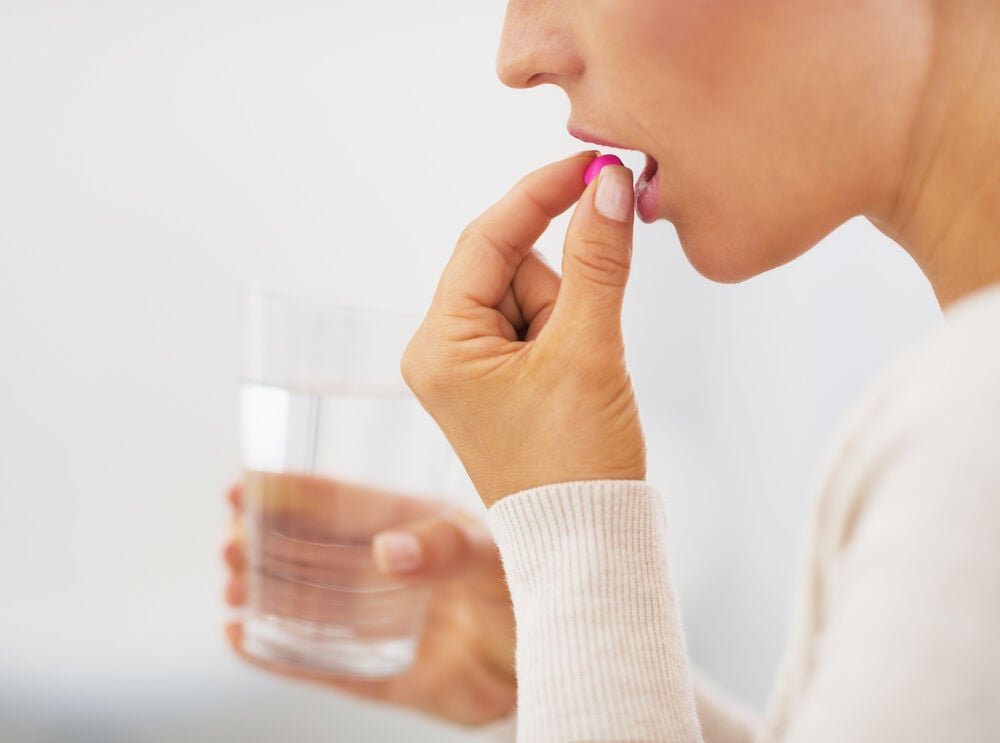Primary ovarian insufficiency happens when a person’s ovaries stop functioning properly before they turn 40. If you have a disrupted menstrual cycle or are having difficulty becoming pregnant, read on for more information about this possible cause.
-
Tracking cycle
-
Getting pregnant
-
Pregnancy
-
Help Center
-
Flo for Partners
-
Anonymous Mode
-
Flo app reviews
-
Flo Premium New
-
Secret Chats New
-
Symptom Checker New
-
Your cycle
-
Health 360°
-
Getting pregnant
-
Pregnancy
-
Being a mom
-
LGBTQ+
-
Quizzes
-
Ovulation calculator
-
hCG calculator
-
Pregnancy test calculator
-
Menstrual cycle calculator
-
Period calculator
-
Implantation calculator
-
Pregnancy weeks to months calculator
-
Pregnancy due date calculator
-
IVF and FET due date calculator
-
Due date calculator by ultrasound
-
Medical Affairs
-
Science & Research
-
Pass It On Project New
-
Privacy Portal
-
Press Center
-
Flo Accuracy
-
Careers
-
Contact Us
Primary Ovarian Insufficiency: What to Expect


Every piece of content at Flo Health adheres to the highest editorial standards for language, style, and medical accuracy. To learn what we do to deliver the best health and lifestyle insights to you, check out our content review principles.
What is primary ovarian insufficiency?
Primary ovarian insufficiency (POI) is a medical condition in which a person’s ovaries stop functioning normally before the age of 40. While it’s been referred to in the past as “premature menopause,” this isn’t entirely accurate. You can still ovulate and have your periods with POI, as your ovaries may not stop working entirely. You can also still become pregnant, although you may have more difficulty conceiving. The condition doesn’t mean that you’ll enter early menopause or that you’re aging prematurely.
The causes of POI aren’t exactly known. It affects about 1 in 1,000 women between the ages of 15 and 29, and 1 out of 100 women in their 30s. Some researchers think that the ovaries may not be working properly because of insufficient levels of reproductive hormones.
POI causes your ovaries to release eggs intermittently, as your body isn’t producing the levels of estrogen, progesterone, and testosterone necessary for a normal menstrual cycle. Your risk factors can increase between the ages of 35 and 40 and if you have a family history of the condition. Other risk factors include prior radiation treatment, chemotherapy, and a history of pelvic surgery.
Can you conceive with primary ovarian insufficiency?
It is possible to become pregnant if you have POI. Your ovaries may still be working, although your ovulation may be more irregular. This means that finding the “fertile window” can be more difficult. Theoretically, pregnancy can be possible until your eggs are depleted, although these instances are rare.
Some women with milder cases of POI may spontaneously ovulate, and about 5–10 percent of women with this condition will still become pregnant. Some women may also have success with donor eggs, as POI affects your ability to ovulate and become pregnant, not necessarily the ability of your uterus to sustain a pregnancy. Other options for couples who want a child may include in-vitro fertilization, embryo donation, and adoption.
Traditional fertility treatments, such as medically induced ovulation, aren’t very successful primary ovarian insufficiency treatments. While you may have fertile follicles, inducing ovulation with clomiphene citrate or exogenous gonadotropins hasn’t been shown to be effective.
Primary ovarian insufficiency symptoms
Symptoms of this condition are similar to menopause, and these two conditions are related. Both deal with a change or reduction in levels of sex hormones. However, symptoms of POI can vary from person to person, and not everyone will have all of these symptoms. Most people notice irregular menstruation, either longer cycles than usual or too-frequent periods, before periods stop completely (amenorrhea). If you’ve missed three periods in a row or haven’t had a period in at least three months (and you aren’t pregnant or beginning menopause), then talk to your doctor about checking for POI.
Other people experience symptoms similar to menopause, when the levels of estrogen in your body drop. Hot flashes, trouble sleeping, decreased sexual drive, and vaginal dryness are some of these symptoms. Other people never experience these symptoms or may attribute them to stress. Many people don’t know they have POI until they seek treatment for infertility.
Other symptoms of POI can include:
- Your period suddenly stopping
- Changes in skin pigmentation
- Vitiligo, an autoimmune disorder that causes patches of skin discoloration
- Hyperpigmentation
- Adrenal insufficiency
- Hair loss
- Fatigue
- Anxiety or depression without a prior history of clinical depression or generalized anxiety disorder
- Goiter
While these secondary symptoms aren’t unique to POI, if you’re experiencing these along with missed periods or infertility, you may want to see a doctor.
Take a quiz
Find out what you can do with our Health Assistant
Primary ovarian insufficiency causes
There can be many reasons why someone’s ovaries aren’t functioning properly. Certain types of genetic chromosomal disorders like Fragile X syndrome and Turner syndrome can disrupt ovulation, as can certain autoimmune disorders. Essentially, an increase in follicle depletion in the ovaries leads to POI, although how and why the follicles are depleted may not be known in about 75 to 90 percent of cases.
Exposure to radiation can cause mutations that also result in POI. For example, people who have undergone radiation therapy for cancer, chemotherapy, or who were prescribed certain anti-cancer drugs may develop POI later in life.
Certain types of genetic chromosomal disorders like Fragile X syndrome and Turner syndrome can disrupt ovulation, as can certain autoimmune disorders.
People who have certain types of autoimmune disorders may also develop POI. Autoimmune disorders are when your immune system begins to attack healthy tissues. There may also be a link between adrenal insufficiency and POI. Or, if you have problems with your thyroid gland, like Graves’ disease or Hashimoto’s disease, you may experience ovarian insufficiency.
If you have an autoimmune adrenal disease or Addison’s disease, there is a strong chance that you may develop POI. Addison’s disease is a severe medical condition that can result in long-term health complications on its own, aside from causing POI.
Testing for primary ovarian insufficiency
Your doctor may want to run lab tests if you’ve had three consecutive months of irregular or missed periods. They will also measure several different hormone levels in your body, since POI has a correlation with several autoimmune diseases. Your doctor will be checking for follicle-stimulating hormone and estradiol levels in particular. They may also recommend testing your thyroid and prolactin levels.
If your doctor has confirmed a diagnosis of POI, you’ll have other tests, such as Karyotype, FMR1, and testing the levels of adrenal antibodies. You may also have your ovaries examined either with a pelvic ultrasound or indirect immunofluorescence.
Primary ovarian insufficiency treatment options

Treating POI may begin by treating an underlying medical condition that caused the ovulation disruption, such as an adrenal disease or autoimmune disorder. If your doctor can treat your endocrine system and stabilize normal hormone levels, your body may begin ovulating normally again.
Other primary ovarian insufficiency treatments can include hormone replacement therapy, such as with estrogen. If you still have your uterus, your doctor will likely prescribe both estrogen and progesterone, as the progesterone can help protect the endometrium (inner lining of the uterus) from developing uterine cancer. The combination of these two hormones may cause your period to return or to be more regular, but it won’t restore the function of your ovaries. This therapy may also help reduce the menopausal symptoms that some people experience.
You may also be advised to take calcium and vitamin D supplements, which can help prevent osteoporosis. Make sure to always check with your doctor before beginning to take any supplements.
When to see a doctor
If you’re experiencing irregular or missed periods, menopausal symptoms, or are having trouble conceiving, it’s better to speak with your doctor. POI may be one of many medical conditions affecting your menstrual cycle.
People who have POI also have an increased risk of developing heart disease and osteoporosis, so even if you’re not actively trying to conceive, it’s a good idea to treat the condition to reduce other health risks.
Things to remember
Primary ovarian insufficiency can be caused by several different factors. While treating an underlying medical condition can help reduce some of the hormone-based side effects of POI, it may restore your ability to ovulate regularly. Pregnancy may still be possible with POI, but it can be challenging. Finally, even if you aren’t trying to conceive with POI, you should still seek treatment to reduce the chances of developing heart disease or osteoporosis.


Hey, I'm Anique
I started using Flo app to track my period and ovulation because we wanted to have a baby.


The Flo app helped me learn about my body and spot ovulation signs during our conception journey.


I vividly
remember the day
that we switched
Flo into
Pregnancy Mode — it was
such a special
moment.
Real stories, real results
Learn how the Flo app became an amazing cheerleader for us on our conception journey.




